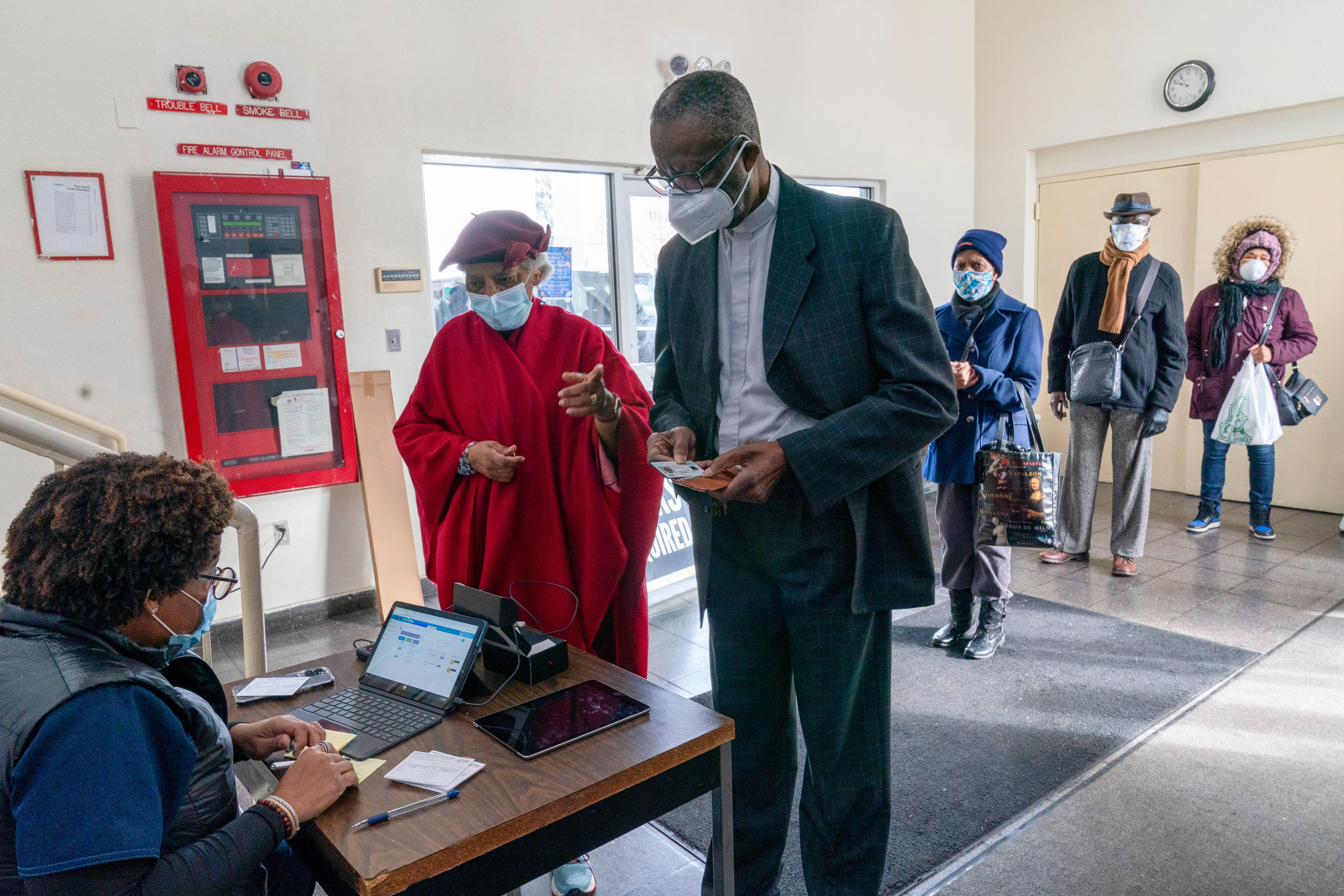Things to Know: State vaccination talks being held privately
As the nation’s COVID-19 vaccination campaign accelerates, governors, public health directors and committees advising them are holding key discussions behind closed doors, including debates about who should be eligible for the shots and how best to distribute them

Your support helps us to tell the story
From reproductive rights to climate change to Big Tech, The Independent is on the ground when the story is developing. Whether it's investigating the financials of Elon Musk's pro-Trump PAC or producing our latest documentary, 'The A Word', which shines a light on the American women fighting for reproductive rights, we know how important it is to parse out the facts from the messaging.
At such a critical moment in US history, we need reporters on the ground. Your donation allows us to keep sending journalists to speak to both sides of the story.
The Independent is trusted by Americans across the entire political spectrum. And unlike many other quality news outlets, we choose not to lock Americans out of our reporting and analysis with paywalls. We believe quality journalism should be available to everyone, paid for by those who can afford it.
Your support makes all the difference.Here’s what’s happening Wednesday with the coronavirus pandemic in the U.S.:
THREE THINGS TO KNOW TODAY:
— As the nation’s COVID-19 vaccination campaign accelerates, governors public health directors and committees advising them are holding key discussions behind closed doors, including debates about who should be eligible for the shots and how best to distribute them. A review by The Associated Press finds that advisory committees created to help determine how to prioritize vaccine doses have been holding private meetings in at least 13 states that are home to more than 70 million people. In at least 15 other states, such meetings are open to the public. But even in those states, governors and health officials can modify or override committee recommendations with little or no public explanation.
— President Joe Biden is telling House Democrats he’s not married to all the specifics of the $1.9 trillion COVID rescue plan. But he wants them to “go big” and not let the size or scope shrink. Biden delivered private remarks to the Democratic caucus on Wednesday, and followed with a meeting with Democratic Majority Leader Chuck Schumer and top senators at the White House. Biden says his proposed $1,400 direct payments to Americans must stay in the bill. Biden has panned a slimmer Republican alternative as insufficient. But he’s confident he will win GOP support. He’s told Democrats he’s “got your backs” as Congress prepares for votes on the sweeping deal.
— San Francisco has sued its own school district to try to force a resumption of in-person instruction. The lawsuit filed Wednesday, which may be the first of its kind in the U.S. comes as school systems are coming under increasing pressure from parents and politicians to reopen classrooms that were shuttered because of the pandemic. Teachers unions in many large cities, including San Francisco and Chicago, say their members shouldn't be asked to return to classrooms until they are vaccinated.
THE NUMBERS: According to data through Feb. 2 from Johns Hopkins University, the seven-day rolling average for daily new cases in the U.S. fell over the past two weeks from nearly 200,473 on Jan. 19 to nearly 141,425 on Feb. 2. During that period, the seven-day rolling average for daily new deaths rose from about 2,997 to roughly 3,090.
QUOTABLE: “You just don’t know if they’re infected, so as difficult as that is, at least this time around, just lay low and cool it," Dr. Anthony Fauci said Wednesday about the risks of hosting or attending Super Bowl parties during the pandemic.
ICYMI: A new study found that cleaner air from the pandemic lockdown warmed the planet a bit in 2020, especially in places such as the eastern U.S., Russia and China. The study released Tuesday found that the lockdown reduced soot and sulfate air particles, which are pollution that also reflects the sun’s heat and helps cool areas briefly. The result is that some places warmed temporarily by as much as two-thirds of a degree Fahrenheit last year and the planet as a whole warmed by about half a degree. The study’s lead author said that loss of cooling outweighed any reduction of heat-trapping carbon pollution last year.
ON THE HORIZON: Hiring has weakened for six straight months. Nearly 10 million jobs remain lost since the coronavirus started and the Congressional Budget Office this week forecast that employment won’t regain its pre-pandemic level until 2024. However, a hopeful view is gaining steam that as vaccinations reach a critical mass in the U.S., perhaps around midyear, the economy and job market will strengthen much more quickly than they did after previous recessions. For now, though, the economy’s rebound has been highly unequal. The unemployment rate for the poorest quarter of Americans is roughly four times that of the wealthiest quarter.
___
Find AP’s full coverage of the coronavirus pandemic: https://apnews.com/hub/coronavirus-pandemic